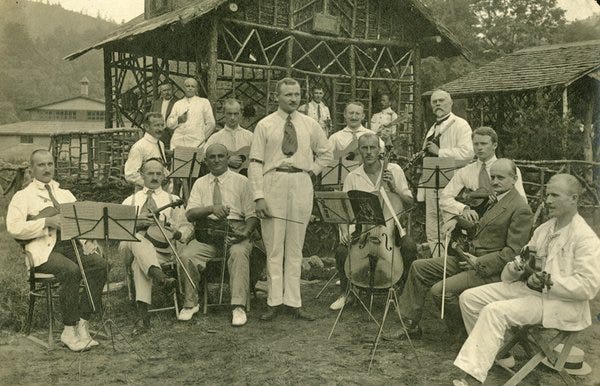Lost Records - The German Enemy Aliens and American Internment Camps of WWI

One of my grandparents was a first-generation American. His parents had been born in Russia, but they were German. The Volga Germans had been indentured populations in Russia since Catherine the Great and pushed to America in the 19th and 20th centuries for a better life. My great-grandparents immigrated separately, married in Michigan, and had three children in Sheboygan, Wisconsin. However, the German settlement in Walton, Florida, is what I grew up hearing about, as it was where my great-grandmother thrived through her youngest leaving home, becoming a widow, and re-marrying.
Around the time my grandfather was born, WWI was being fought overseas. His father registered for the draft as an alien (i.e., non-American), and in 1920 he had submitted for naturalization. His immigration had been from Russia, and his parents lived in Russia, but he had a German name (somewhat Americanized to Maertz). In 1917, and again in 1918, the U.S. took steps to registed German aliens, looking for enemy combatants on home soil, and requiring proof of loyalty to the U.S. However, despite 430,000 aliens being registered under the Presidential Acts, the records available are limited.
The National Archives admits that most records of this process have been lost and no master lists survive. Were my grandparents among these registered aliens? It appears they were not, likely because of their origin from Russia, but we may never know. The remaining records are publicly available but mainly consist of limited information from Kansas, Minnesota, Nebraska, Lousiana, Kentucky, North Carolina, and Arizona, with a couple of Wisconsin documents on women registered via the Post Office. See the National Archives for access.
Also available is limited information on internments and seized property of German aliens in the U.S. at that time. Hot Springs, North Carolina, became home to some of the 6300 arrested under the Presidential Arrest Warrants of the time. For more information and photos, see the Madison County site.
An interesting read on the internment of Germans in WWI is in Lapham’s Quarterly.
Subscribe to GenTales
Lineage and genealogy research




